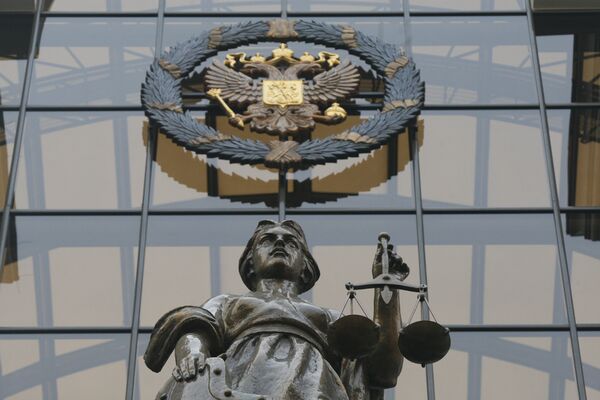ST. PETERSBURG, December 4 (RAPSI) – Russia’s highest court has ruled that a controversial law banning “gay propaganda” is not in breach of the Constitution.
The Constitutional Court dismissed a complaint from Nikolai Alexeyev, a leading gay rights campaigner, that St. Petersburg city council had acted unconstitutionally by passing legislation to ban the promotion of homosexuality among minors.
The law, which came into effect in March 2012, allows for fines of up to 5,000 rubles ($150) for individuals and up to 500,000 rubles ($15,000) for organisations. A similar federal law banning the promotion of “non-traditional sexual relationships” among minors took effect in June this year.
The legislation has been sharply criticized as discriminatory by human rights activists in Russia and abroad, with some campaigners calling for a boycott of next February’s Winter Olympics in Sochi in protest. World leaders including US President Barack Obama and Britain’s Prime Minister David Cameron have also condemned it.
The Kremlin maintains that the law aims to protect children and does not prevent adults from making their own choices. President Vladimir Putin has insisted that there will be no “discrimination against people on any basis whatsoever” at the Games.
The Constitutional Court’s ruling followed a fine imposed on Alexeyev by a city court in St. Petersburg in May 2012 for holding up a poster of a quote by a famous Soviet-era actress Faina Ranevskaya. It read: “Homosexuality is not a perversion, unlike grass hockey or ice ballet.”
Alexeyev had asked the court to rule that the law was based on prejudice and permitted discrimination against people based on their sexual orientation. But the judges concluded that the Constitution obliged the State to protect motherhood, childhood and family.
Legislators therefore had a duty to “take measures to protect children from information, propaganda and campaigns that can harm their health and moral and spiritual development”. The court ruled that the law against gay propaganda was such a measure, arguing that the exercise of civil rights and freedoms could not be permitted at the cost of other people’s rights.
It also dismissed Alexeyev’s complaint that the law was discriminatory, saying the ban applied equally to gay and heterosexual people and did not discrimate on grounds of sexual orientation. The court’s ruling was made on October 24, but released publicly on Tuesday.
In a separate case, a court in the northern city of Murmansk fined Alexeyev and fellow activist Yarosvlav Yevtushenko 4,000 rubles each on Tuesday. The GayRussia campaign website said that the two men had been convicted under the gay propaganda law for holding up banners outside a children’s library that read “gay propaganda doesn’t exist. People don’t become gay, people are born gay”.


